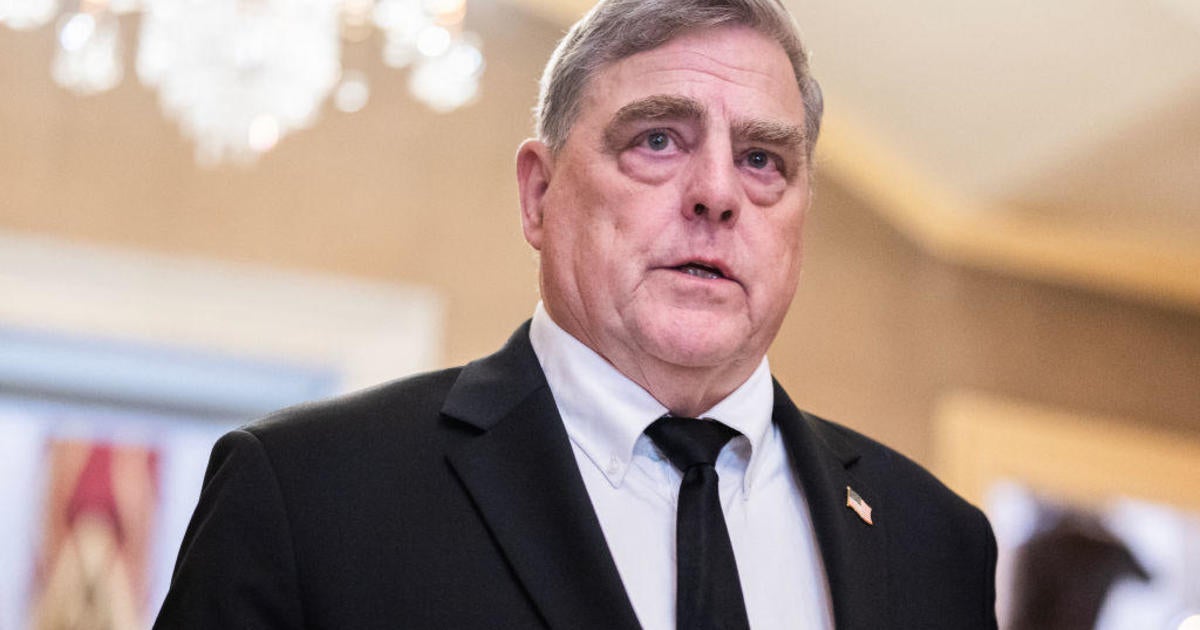Retired General Mark Milley, who served as Chairman of the Joint Chiefs of Staff in both the Trump and Biden administrations, is facing significant repercussions as the Pentagon has revoked both his security detail and security clearance. This unprecedented move was announced by the new Defense Secretary, Pete Hegseth, who informed General Milley that his security detail authorization was being revoked and his security clearance suspended. Pentagon spokesman John Ullyot confirmed this development in a statement to CBS News on Tuesday night.
Furthermore, Secretary Hegseth has directed the Defense Department’s Office of Inspector General to conduct an inquiry into the facts and circumstances surrounding General Milley’s conduct. This investigation aims to provide Secretary Hegseth with the necessary information to determine whether it is appropriate to reopen the review of General Milley’s military grade determination. Acting Defense Department Inspector General Stephen Stebbins has been tasked with reviewing the request to determine if General Milley, a four-star general, should be stripped of a star.
General Milley was initially nominated by former President Trump to head the Joint Chiefs during his first term, a position he held for a full four-year term from 2019 until 2023. However, tensions between Mr. Trump and General Milley began to escalate during the final months of Mr. Trump’s first term. The catalyst for this rift was an incident in June 2020, where General Milley issued an apology for participating in a photo op in front of St. John’s Church while dressed in fatigues. This event occurred after federal officers cleared out social justice protesters from Lafayette Park to allow Mr. Trump to walk to the church from the White House.
A book published in September 2021 shed further light on General Milley’s actions, revealing that he had engaged in two phone calls with Chinese General Li Zuocheng of the People’s Liberation Army. These calls took place on Oct. 30, 2020, and Jan. 8, 2021, just two days after the Capitol insurrection. During these conversations, General Milley reassured the Chinese general that the U.S. had no intention of launching an attack against China and that the nation was stable. Mr. Trump reacted strongly to this revelation, suggesting that General Milley’s actions amounted to treason and even insinuating that they could warrant execution.
In response to these accusations, General Milley defended his actions in an interview with “60 Minutes” in October 2023. He characterized the calls as examples of deescalation, stating that the Chinese were expressing concerns about the events unfolding in the United States. Additionally, a book from 2021 suggested that General Milley had prepared for the possibility of Mr. Trump attempting a coup after losing the 2020 election. This proactive approach was validated when former President Joe Biden preemptively pardoned General Milley and others he believed could be targeted by the Trump administration as he left office on Jan. 20.
Joe Kasper, the Defense Department Chief of Staff, emphasized the importance of upholding the chain of command and restoring accountability within the Defense Department under President Trump’s leadership. This sentiment was echoed by the Trump administration’s decision to revoke the federal security details of other prominent figures, including former Secretary of State Mike Pompeo, former national security adviser John Bolton, former special envoy on Iran Brian Hook, and Dr. Anthony Fauci, the former director of the National Institute of Allergy and Infectious Diseases.
The actions taken against General Milley by the Pentagon mark a significant turning point in the ongoing political and military tensions within the United States. The fallout from his interactions with Chinese officials and his perceived role in undermining the chain of command have raised questions about the appropriate boundaries for military leaders in the realm of diplomacy and national security. As the investigation into General Milley’s conduct unfolds, the implications for his future and the broader implications for civil-military relations in the U.S. remain uncertain.
In conclusion, the decision to revoke General Milley’s security detail and security clearance represents a critical moment in the ongoing political turmoil that has gripped the nation. The repercussions of his actions and the subsequent investigations will undoubtedly have far-reaching consequences for the military, the political establishment, and the nation as a whole. As the situation continues to evolve, it remains to be seen how General Milley and those involved will navigate the fallout from these unprecedented developments.









